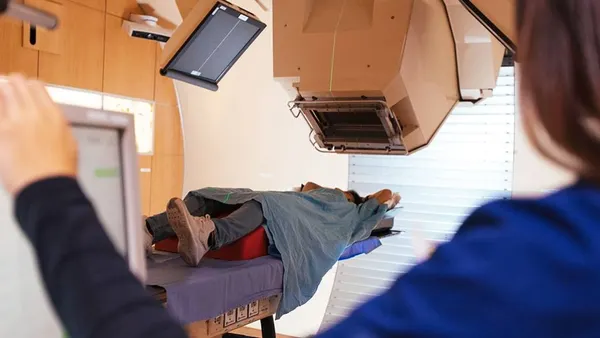Quest Diagnostics is broadening access to its multiplex test to detect flu and COVID-19, letting patients self-collect samples for the test at its 1,600 testing centers across the U.S. Previously, patients had to make an appointment at a testing site, where they were swabbed by a clinician.
Quest said it made the changes to improve testing access as respiratory illnesses increase.
Flu cases have been rising in the U.S., and cases of influenza-like illness are higher than in recent years, according to the Centers for Disease Control and Prevention. Cases of respiratory syncytial virus (RSV), which affects young children and older adults, are also increasing.
“We’re very concerned about the potential for a season where we see a lot of disease,” said Dr. W. Ian Lipkin, John Snow professor of epidemiology and director of the Center for Infection and Immunity at Columbia University’s Mailman School of Public Health, in a phone interview. He recommended that adults should be up-to-date on their COVID-19 boosters, flu shot and whooping cough vaccines.
Multiplex tests can be useful since many of these respiratory viruses share similar symptoms, and the test can affect decisions about treatment, Lipkin said. Antiviral drugs are available for both flu and COVID-19, but each is different, and the drugs need to be introduced early on in the course of an infection to be most effective.
“From a public health standpoint, it allows us to track causes of disease, make decisions about investment in vaccines, diagnostics and other public health interventions,” Lipkin said.
Quest also offers a combined COVID-19, influenza and RSV test to be used by physicians in clinical settings. Several other diagnostic companies have developed their own multiplex tests, most of which are used by clinicians.
In 2021, Salt Lake City-based BioFire Diagnostics got de novo clearance for its BioFire respiratory panel, a molecular test that it says can detect 22 respiratory pathogens, including SARS-CoV-2.
Labcorp also received an emergency use authorization (EUA) in 2020 for a multiplex test for COVID-19, flu and RSV that physicians could use to diagnose patients and make decisions about treatment. More recently, it won authorization to offer a version of the test where patients swab at home, though the results are still processed in a lab.
Becton Dickinson received an EUA last year for its Veritor Plus test, a point-of-care antigen test used to detect COVID-19 and flu.













